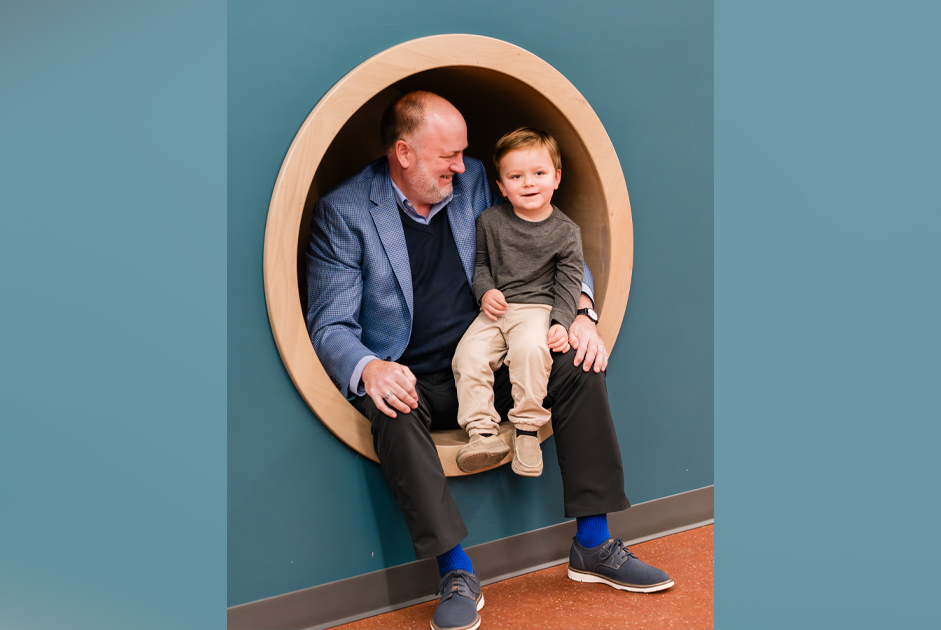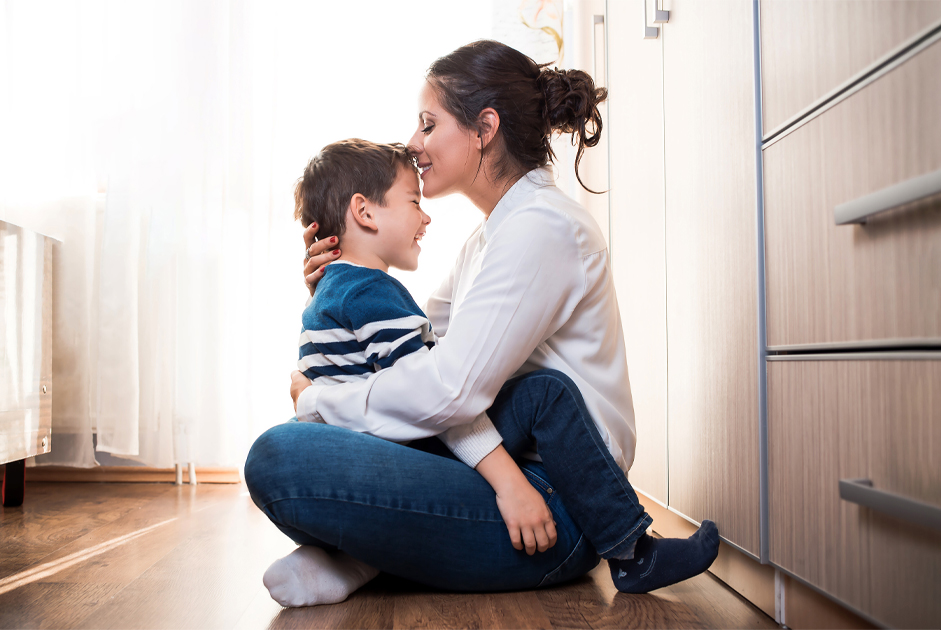Each month, this series introduces fun and impactful healthy habits to help families with kids and teens prioritize physical, mental and spiritual well being – fostering a lifestyle of shared growth and lifelong wellness. Healthy habits built together are the ones that last a lifetime.
When many people think of meditation, they picture someone sitting crosslegged in complete silence for hours. Others may assume it’s something only monks, yoga enthusiasts or those deeply immersed in spirituality spend time doing. In other words, it can seem a little “woo woo.”
Keep an Open Mind on Meditation
The truth is, meditation is for everyone – kids included – and it doesn’t necessarily require complete silence, a perfectly still mind or look any one way.
Meditation is simply the practice of being present, calming the mind and training our thoughts in a way that helps us process emotions and navigate life more peacefully. In fact, there are several scientific and medical studies that show the mental and physical benefits of meditation.
Proven Benefits of Meditation That May Surprise You
In a world filled with distractions, screen addiction, stress disorders and rising mental health concerns, meditation can serve as a powerful tool for children and adolescents. Not only can the inclusion of even a few minutes of meditation each day reduce anxiety, support focus and improve emotional regulation but can also help foster healthy coping mechanisms and increase gratitude.
A recent study from the Journal of Adolescent Health discovered that meditation can help decrease symptoms of depression and anxiety in teenagers. Other research has linked mindfulness practices to improved eating habits, as meditation can help reduce impulsive behaviors and promote healthier relationships with food.
Nurturing the Norm of Meditation Starts Now
By making meditation a normal and accessible part of life early on, kids are given invaluable resources for managing emotions, stress and self awareness. If you have the desire to equip your youngest family members with lifelong skills like these, start weaving meditation into your weekly family routine.
Here are three ways to introduce:
#1 Start Small and Make It Fun
First, lose the idea that your kids are going to embrace sitting still for 20 minutes. Children will absolutely experience the benefits of meditation even in short, playful sessions! You can do a “ocean breathing” exercise where they close their eyes pretending to be different sea animals breathing underwater. You could try a simple, guided meditation where you create prompts to imagine they are doing specific actions in their mind. If you’re looking for something less creative on your part, check out a kid’s meditation YouTube video or an app like “Smiling Mind.”
#2 Build a Bedtime or Morning Meditation Routine
Find a time of day that’s easy to add in a new habit. In the evening after teeth brushing and storytime, you can help your little ones relax by doing a simple “body scan” meditation where they close their eyes, lay in bed and focus on relaxing one part of their body at a time from head to toe. Morning routine leaving something to be desired to set your kiddo up for a strong day? Add in a quick 60-second gratitude meditation that reflects on what they are most appreciative for to set them up for positivity.
#3 Get the Whole Family Involved
Behaviors and habits our kids see modeled by the adults in their lives are more likely to be adopted. Once or twice a week, can you make time to sit down together, get comfortable and do some deep breathing exercises or a short guided meditation? Maybe you’re trying to get the family moving more? Go outside for an after dinner walk and prompt family members to listen carefully to what sound they hear in nature? What can they focus on and listen for in their environment and share?
Creating Practices That Last a Lifetime
Creating space for your children to pause and be present gives them lifelong tools to manage stress, distraction and overwhelm. Keep meditation positive, focusing on the practice rather than perfection.



















